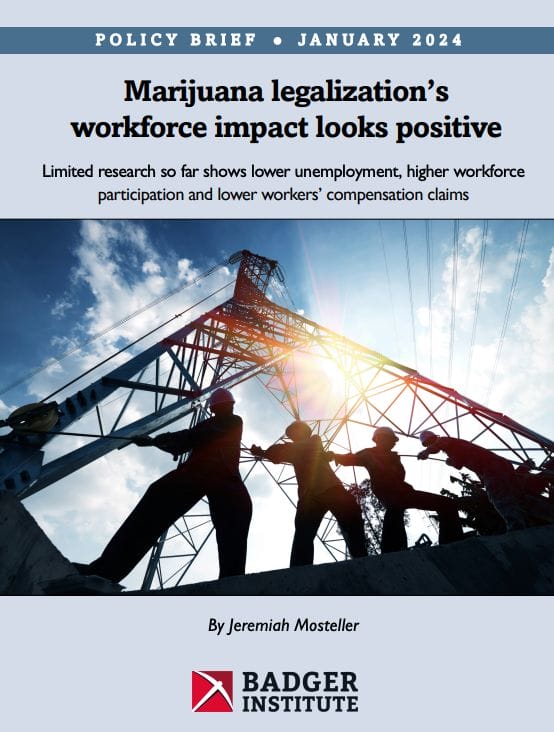Limited research so far shows lower unemployment, higher workforce participation and lower workers’ compensation claims
Editor’s note:
Cannabis legalization might be a policy that many would assume is a negative for a state’s workforce, but our analysis of the limited available research paints a much more complex and positive picture.
In this fourth installment in our “real facts” series, Jeremiah Mosteller lays out the available research. Some clear conclusions that can be made:
Early research suggests that legalizing cannabis for adult use reduces unemployment and increases labor force participation. Allowing medical use appears to have a positive workforce impact for some sorts of people.
Legalization seems to have no impact on the wages.
And legalization is likely to result in a reduction in workers’ compensation claims, with no impact on disability insurance payouts.
This part of our series follows previous installments:
An introduction to the project from Mike Nichols.
A finding that criminal prosecution for marijuana offenses has become rare in much of Wisconsin, from Mosteller.
A finding that legalization in other states has led to either neutral or positive effects on crime, but an increase in traffic crashes, from Mosteller.
A finding that legalization for recreational or medical use increases the use of the drug among adults, while research on youth use is less conclusive.
Submit a comment
"*" indicates required fields





